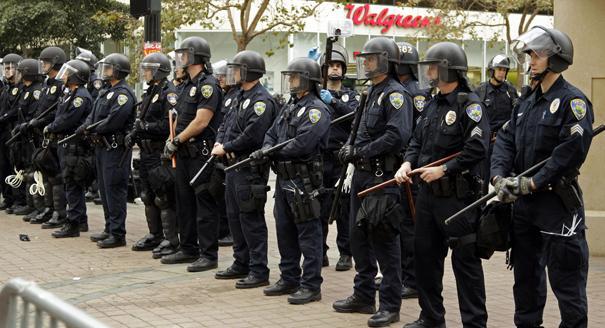Elizabeth Daly, a 20-year-old student from the University of Virginia, bought bottled water and ice cream for a sorority fundraiser. As she was walking back to her car, she was approached by seven plainclothes agents from the Virginia Department of Alcoholic Beverage Control — one of whom she said jumped on the hood of her car and pulled a gun on her. The officers mistook her case of LaCroix sparkling water for a case of beer, according to The Daily Progress.
Unsure of who they were, Daly panicked and fled the scene. She spent the night in jail and was charged with two counts of assaulting a law enforcement officer and one count of eluding police — all Class 6 felonies that carry a maximum penalty of five years in prison and $2,500 in fines per offense. In a report, she said she was not aware the agents were officers because they did not reveal a badge or uniform.
This is an extremely exaggerated response to suspected underage drinking, but unfortunately, police brutality is becoming more common.
Since 9/11, police forces around the country have undergone mass changes thanks to the decade-long war on terror. While the war on drugs gave police forces upgrades on military-grade weapons, 9/11 gave them an armory.
The Department of Homeland Security grant program has written huge checks to police departments across the country to purchase machine guns, helicopters, tanks and armored personnel carriers from the battlefields of Iraq and Afghanistan. In the last ten years, the department has granted away approximately $35 million.
Radley Balko, a senior writer and investigative reporter who covers civil liberties and the criminal justice system for the Huffington Post, said police use of military weapons is a problem, but the issue is much more complicated.
“The gear and weapons and tanks are a problem,” he said. “But I think a much deeper problem is the effect all of this war talk and battle rhetoric has had on policing as a profession. In much of the country today, police officers are psychologically isolated from the communities they serve. It’s all about us vs. them.”
The Founding Fathers would probably have a huge problem with a police force dressed and armed like soldiers patrolling neighborhoods.
The solider mentality can explain a lot of the unnecessary brutality that we see from officers around the country today.
For example, a Hawthorne, Calif., police officer shot and killed a 2-year-old rottweiler. Officers tried to grab the dog’s leash and then opened fire.
In his recent book, “Rise of the Warrior Cop,” Balko discusses the case.
“If you think it’s appropriate to do this to prevent a dog from breaking your skin, that’s a mentality that says, ‘police officers’ safety is to be preserved at all costs,’” he said in an interview about the book. “I can name cases where police officers have shot dogs and missed and shot one another, shot bystanders. Even if you don’t particularly care about the dogs, it is dangerous.”
The problem is funded by both sides of the aisle. Since the Nixon era, every president has increased funding for local police departments through various grant or incentive programs. Politicians also throw money at police departments without following up to see where the money goes.
Overall, police departments need more accountability. It is hard to fire an officer, and most times — even if they do get fired — another department will hire them.
The use of social media has sparked many departments to punish officers more harshly. If more cops are aware their actions could be recorded, they will most likely act on their best behavior.
In addition, citizens need to demand more transparency from police departments.
Departments should be required to tape all raids and publicly display records, including the number of SWAT team raids, the reason for the raids and the results.
Most importantly, police officers should not be treated above the law. If an innocent family is terrorized during a raid, there should be legal consequences.
Elizabeth Garcia is a 21-year-old mass communication senior from Greensboro, N.C.
Opinion: Police brutality is a growing issue nationwide
July 15, 2013
Oakland police officers in riot gear line Frank H. Ogawa plaza Tuesday, Oct. 25, 2011, in Oakland, Calif. Occupy Oakland protestors were evicted from the plaza early this morning. Police in riot gear began clearing anti-Wall Street protesters on Tuesday morning from the plaza in front of Oakland’s City Hall where they have been camped out for about two weeks. City officials had originally been supportive of the protesters, but the city later warned the protesters that they were breaking the law and could not stay in the encampment overnight. (AP Photo/Ben Margot)





